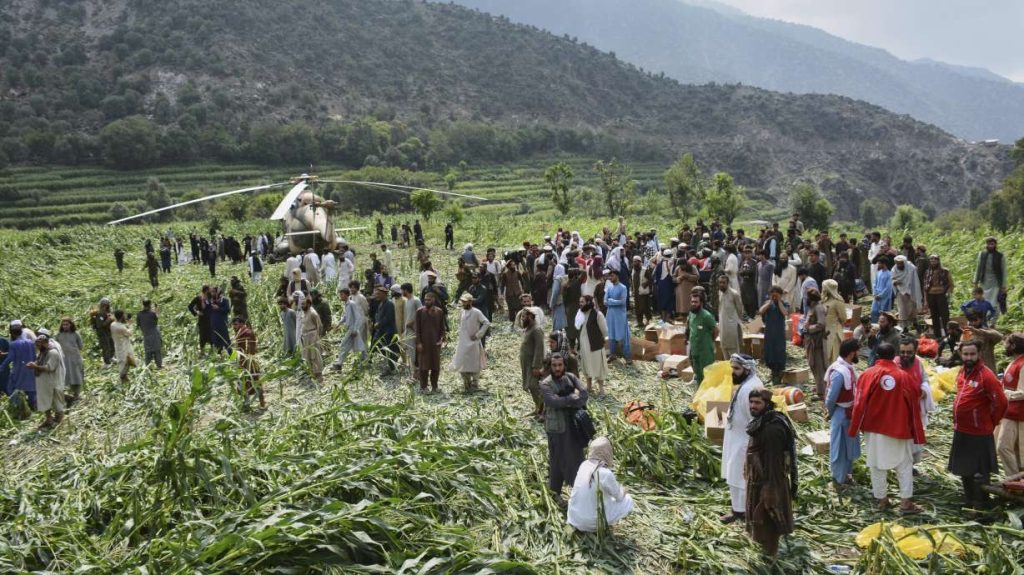Massive Earthquake Devastates Eastern Afghanistan
KABUL, Afghanistan — Afghans are desperately searching through debris for missing family members following a severe earthquake that claimed around 800 lives and left more than 2,500 injured in eastern Afghanistan, as reported by the Taliban government on Monday.
The 6.0 magnitude earthquake struck late Sunday evening, primarily impacting areas in Kunar province, near Jalalabad in Nangarhar province, resulting in significant destruction.
Residents in the Nurgal district, one of the hardest-hit regions, reported that nearly the entire village was obliterated. One unnamed villager expressed his dire situation: “Children are under the rubble. The elderly are under the rubble. Young people are under the rubble.” He urgently called for assistance, highlighting the need for help in recovering buried survivors.
According to the U.S. Geological Survey, the earthquake occurred just before midnight, with its epicenter located 17 miles east-northeast of Jalalabad at a depth of 5 miles. Shallow earthquakes typically result in more damage, and several aftershocks followed the initial tremor.
Video footage depicted rescuers evacuating injured individuals on stretchers from collapsed structures while others frantically sifted through the rubble. Zabihullah Mujahid, the Taliban government’s spokesperson, indicated that the death toll had reached at least 800, with the majority of casualties reported in Kunar.
Rescue operations continue, with medical teams arriving from Kunar, Nangarhar, and Kabul. However, many remote areas remain cut off, complicating efforts to assess the full scale of the disaster. Filippo Grandi, the UN High Commissioner for Refugees, pointed out that this earthquake exacerbates existing humanitarian challenges in Afghanistan, urging international donors to aid relief efforts.
Pakistan’s Prime Minister Shehbaz Sharif expressed sorrow over the catastrophe, offering support to those affected. The international community must come together to address the escalating humanitarian crisis in Afghanistan, where many regions are already facing severe shortages of food, water, and medical supplies.



